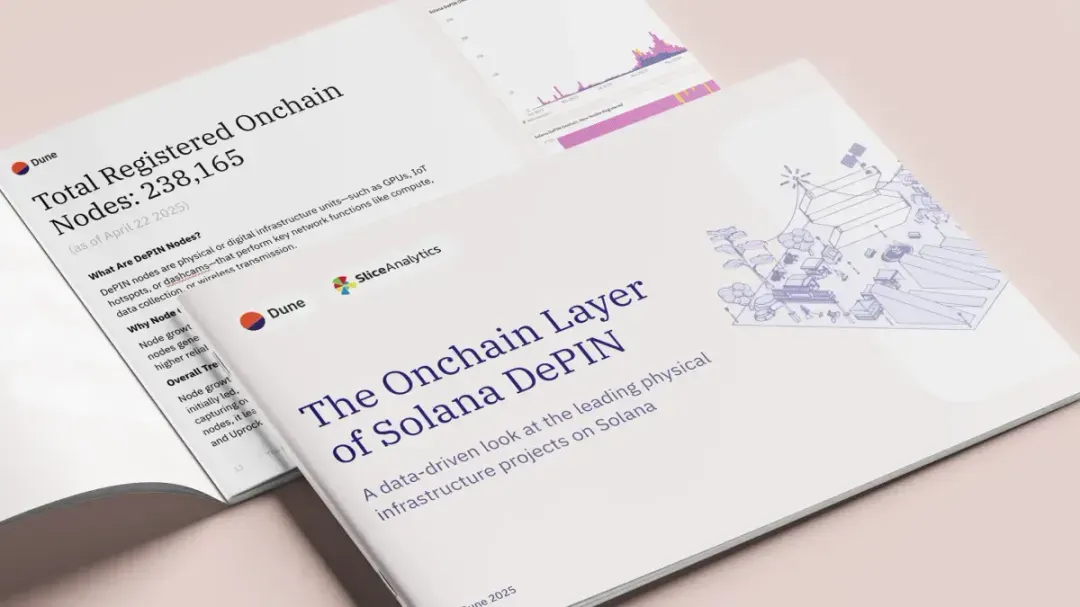GameStop verkleint verlies dankzij Bitcoin-voorraad
2025/09/11 02:31
Connect met Like-minded Crypto Enthusiasts! Connect op Discord! Check onze Discord De Amerikaanse videogame retailer GameStop heeft in het tweede kwartaal van 2025 laten zien hoe een strategische stap richting Bitcoin het bedrijf helpt om verliezen te beperken en zelfs investeerdersvertrouwen nieuw leven in te blazen. Terwijl de traditionele verkoop van hardware en software onder druk staat, vormen digitale activa en een sterke focus op collectibles een cruciaal vangnet. Bitcoin als reddingsboei In mei kocht GameStop voor $500 miljoen aan Bitcoin, goed voor 4.710 BTC. Aan het eind van dat kwartaal waren deze reserves gestegen naar een waarde van $528 miljoen, waarmee het bedrijf een ongerealiseerde winst had van $28,6 miljoen. Voor een onderneming die jarenlang symbool stond voor de strijd van fysieke retail tegen digitalisering, is dit een positief bedrag. Volgens cijfers van Bitcoin Treasuries behoort GameStop inmiddels tot de top twintig van beursgenoteerde bedrijven die Bitcoin op de balans hebben staan. Dat plaatst de retailer in hetzelfde rijtje als pioniers als MicroStrategy en Tesla, en kan een voorbeeld vormen voor andere bedrijven. Verlies is een stuk kleiner, maar vertrouwen groter De resultaten lieten zien dat de strategie begint te werken. De omzet steeg jaar-op-jaar van $798 miljoen naar $970 miljoen, waarbij vooral trading cards en merchandise sterk presteerden en bijna een derde van de inkomsten genereerden. Ook exclusieve samenwerkingen, zoals limited editions rond de aankomende game Borderlands 4, droegen bij aan de groei. Dankzij kostenbesparingen en bedrijfsvoering draaide GameStop een winst van $66 miljoen, een positieve omkeer ten opzichte van een verlies van $22 miljoen in dezelfde periode vorig jaar. Netto kwam de winst uit op $168 miljoen wat flink hoger lag dan de $14,8 miljoen van een jaar eerder. De rol van crypto in de bedrijfsstrategie De keuze voor Bitcoin wordt door analisten gezien als meer dan een korte termijn winst. Het past in een bredere strategie waarbij GameStop digitale activa gebruikt om de balans te versterken en investeerdersvertrouwen terug te winnen. De timing lijkt gunstig, want sinds mei is de prijs van Bitcoin met bijna 18% gestegen. Bovendien sluit de stap aan bij een bredere trend waarin beursgenoteerde ondernemingen steeds vaker kijken naar Bitcoin als hedge. Voor investeerders betekent dit dat GameStop niet langer uitsluitend afhankelijk is van de cycli. Voorbeeld voor andere bedrijven? De vraag is of meer beursgenoteerde bedrijven het voorbeeld van GameStop zullen volgen. Met een kaspositie van $6 miljard en een recente uitgifte van $270 miljoen heeft de onderneming voldoende liquiditeit om risico’s te spreiden. De eerste signalen lijken positief, want het aandeel steeg na de bekendmaking van de cijfers met ruim 7% in de nabeurshandel tot $25,29. Best wallet - betrouwbare en anonieme wallet Best wallet - betrouwbare en anonieme wallet Meer dan 60 chains beschikbaar voor alle crypto Vroege toegang tot nieuwe projecten Hoge staking belongingen Lage transactiekosten Best wallet review Koop nu via Best Wallet Let op: cryptocurrency is een zeer volatiele en ongereguleerde investering. Doe je eigen onderzoek.
Het bericht GameStop verkleint verlies dankzij Bitcoin-voorraad is geschreven door Timo Bruinsel en verscheen als eerst op Bitcoinmagazine.nl.
Disclaimer: The articles reposted on this site are sourced from public platforms and are provided for informational purposes only. They do not necessarily reflect the views of MEXC. All rights remain with the original authors. If you believe any content infringes on third-party rights, please contact [email protected] for removal. MEXC makes no guarantees regarding the accuracy, completeness, or timeliness of the content and is not responsible for any actions taken based on the information provided. The content does not constitute financial, legal, or other professional advice, nor should it be considered a recommendation or endorsement by MEXC.
Share Insights
You May Also Like

Solana DePIN Report: From "mining" to "mapping", how can ordinary people make money without doing anything?
Based on the latest research report jointly released by Dune and Slice Analytics, this article conducts an in-depth analysis of the development status, market performance and on-chain data of multiple core DePIN projects on Solana.
Share
PANews2025/05/01 15:10
Share

Texas Ponzi Scheme Debtor Denied $12.5M Bankruptcy Protection in Crypto Case
The U.S. Trustee Program (USTP) has secured a judgment denying bankruptcy protection to a Texas man who attempted to evade more than $12.5 million in debts linked to a cryptocurrency Ponzi scheme.
On August 1, the Bankruptcy Court for the Southern District of Texas entered a default judgment against Nathan Fuller, owner of Privvy Investments LLC. Fuller had filed for Chapter 7 bankruptcy in October 2024, shortly after a state court appointed a receiver to seize his assets following investor lawsuits.
But federal investigators found that Fuller concealed assets, falsified documents, and lied under oath in an effort to avoid repaying creditors.
Bankruptcy Court Bars Crypto Scheme Operator From Discharging $12.5M
According to the USTP, Fuller used Privvy Investments to solicit funds under the guise of crypto investments, only to divert investor money for personal use.
Records show that he spent heavily on luxury items and gambling trips and purchased a nearly $1 million home for his ex-wife, who was also involved in the business. Despite the separation, Fuller continued to reside at the property.
U.S. Trustee Kevin Epstein, who oversees Region 7 covering the Southern District of Texas, said the ruling underscores the program’s stance against fraud. “Fraudsters seeking to whitewash their schemes will not find sanctuary in bankruptcy,” Epstein said in a statement.
“The USTP remains vigilant for cases filed by dishonest debtors, who threaten the integrity of the bankruptcy system.”
Investigators alleged that Fuller not only concealed extensive assets but also failed to maintain records and submitted false testimony in both his personal bankruptcy filing and the one filed on behalf of Privvy.
At one point, Fuller was held in civil contempt for failing to comply with court orders. During proceedings, he admitted to operating Privvy as a Ponzi scheme, fabricating documentation, and providing false statements designed to obstruct the work of the court-appointed Chapter 7 trustee.
After failing to respond to the USTP’s complaint, the court entered a default judgment in favor of the agency. As a result, Fuller remains personally liable for his debts, including more than $12.5 million in unsecured obligations listed in his filings. Creditors are now free to continue collection efforts against him.
The USTP said its mission is to protect the integrity of the bankruptcy system for debtors, creditors, and the public. The agency emphasized that the outcome in Fuller’s case demonstrates its commitment to holding dishonest actors accountable.
The judgment adds another chapter to the mounting scrutiny around crypto-linked investment schemes. While legitimate blockchain firms continue to raise capital and build infrastructure, fraudulent ventures such as Fuller’s highlight the risks facing investors.
Earlier this year, web3 wallet infrastructure firm Privy, a separate company unrelated to Fuller’s operation, closed a $15 million funding round led by Ribbit Capital, bringing its total raised to more than $40 million.
The company’s wallet-enabled stack powers projects like Hyperliquid, Farcaster, OpenSea, and Blackbird, serving over 50 million accounts across payments, DeFi, and gaming.
The juxtaposition of these developments reflects a maturing crypto sector still grappling with trust issues stemming from fraud.
Fraud Shadows Over Crypto Sector as Similar Cases Highlight Investor Risks
In a similar case, on July 8, San Jose-based fintech firm Linqto filed for Chapter 11 bankruptcy in the Southern District of Texas, exposing deep cracks in its business model.
Once marketed as a gateway for everyday investors to buy pre-IPO shares in tech giants like Ripple and CoreWeave, the platform now faces allegations that customers may never have actually owned the shares they believed they purchased.
The company listed assets and liabilities between $500 million and $1 billion, with more than 10,000 creditors potentially affected.
Chief Restructuring Officer Jeffrey Stein said “years of mismanagement” and securities law violations dating back to 2020 left Linqto possibly insolvent, further shaking confidence in retail access to private markets.
Separately, the U.S. Department of Justice announced yesterday a civil forfeiture action to seize over $5 million in Bitcoin stolen through SIM swap attacks.
Prosecutors said attackers hijacked victims’ phone numbers between October 2022 and March 2023, intercepting authentication codes to drain crypto wallets.
The stolen funds were allegedly funneled through multiple wallets and eventually into an account at Stake.com, an online casino.
Investigators accuse the perpetrators of using circular transactions to disguise the source of the Bitcoin before consolidation
Share
CryptoNews2025/09/11 06:09
Share

Let’s take a look at the currently popular crypto payment products. Exchanges are the main players. What are their highlights and benefits?
The market for encrypted payment products and payment cards (U cards) is becoming increasingly diverse. With the recent launch of new products such as OKX Pay, Infini Card, and Solayer Emerald Card, the discussion has heated up again. In this article, PANews sorted out several popular Web3 payment products, focusing on their payment functions and reward mechanisms.
Share
PANews2025/05/02 13:51
Share